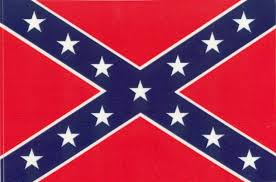confederate
英 [kən'fed(ə)rət]
美 [kən'fɛdəret]
- n. 同盟国,同盟者
- adj. 同盟的,联合的
- vt. 使联盟;使联合;同伙;帮凶
- vi. 同盟;联合
TEM8 TOEFL
- confederate (v.)
- late 14c., from Late Latin confoederatus "leagued together," past participle of confoederare "to unite by a league," from com- "with, together" (see com-) + foederare, from foedus (genitive foederis) "a league" (see federal). Also used as a past participle adjective from late 14c., as a simple adjective from 1550s; meaning "of or belonging to the Confederate States of America" is from 1861. Used as a noun from late 15c. (Late Latin confoederatus also was used as a noun in its day).
- 1. The Confederate States perceive that they cannot carry all before them with a rush.
- 南部邦联可以看出,他们不可能突然一下子大获全胜.
来自《简明英汉词典》
- 2. The thief was arrested, but his confederate escaped.
- 小偷被逮住了,但他的同伙却逃之夭夭。
来自辞典例句
- 3. The country agreed to confederate with the neighboring country for mutual security.
- 这个国家同意为了共同的安全而与邻国结盟。
来自辞典例句
- 4. 'sir,'said Mrs. Meade indignantly. " There are no deserters in the Confederate army. "
- " 先生,联盟军里可没有逃兵呀, " 米德太太愤愤地插嘴说.
来自飘(部分)
- 5. " Well, honey, where did all our Confederate gold go to?
- " 嗯, 宝贝, 你说我们联盟政府的黄金到哪里去了 呢 ?
来自飘(部分)
[ confederate 造句 ]
